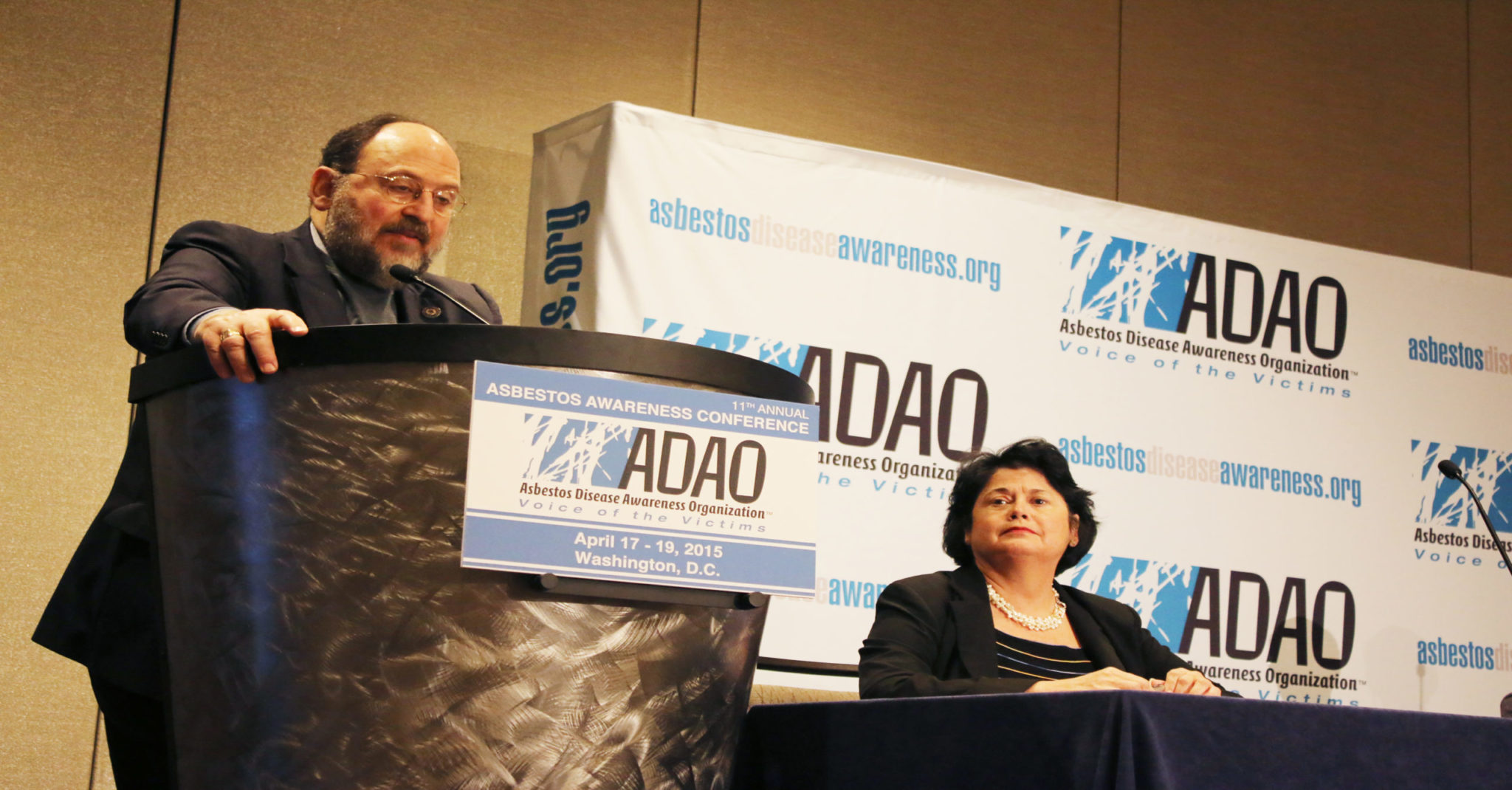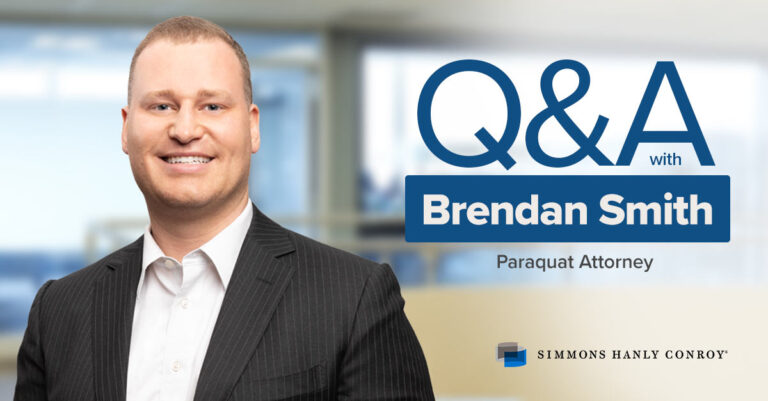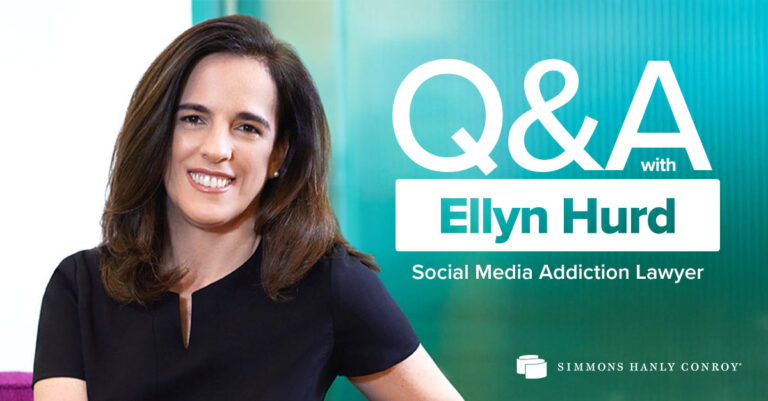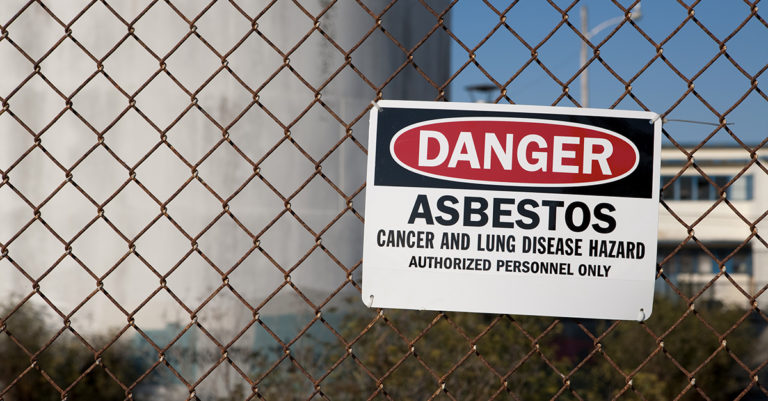
On Friday, April 3, President and CEO of the Asbestos Disease Awareness Organization (ADAO) Linda Reinstein hosted a virtual luncheon with Dr. Arthur Frank, MD, PhD, who is ADAO’s Science Advisory Board Co-Chair. The topic of discussion was COVID-19 and the unique health risks facing Americans who have battled—or are currently battling—through an asbestos-related disease.
ADAO’s luncheon took place during Global Asbestos Awareness Week (GAAW) and what would’ve been the first day of ADAO’s 16th annual International Asbestos Awareness and Prevention Conference, had the event not been postponed due to the COVID-19 outbreak (the conference had been scheduled to run from April 3-7 in Washington, D.C).
Dr. Frank has been involved with ADAO and in the clinical care of mesothelioma patients and other asbestos-related diseases for decades as a board-certified physician in both occupational and internal medicine. As a medical doctor and an expert in his field, Dr. Frank occupies the unique position of having thorough knowledge of asbestos-related diseases while simultaneously understanding the fundamental nature of viruses and how viruses impact terminal diseases.
“We live in a world full of viruses,” Dr. Frank reiterated several times, “but it is how we react to them, and how we build community around them, that matters most.”
How Can COVID-19 Impact a Mesothelioma Patient?
In their virtual luncheon discussion, Reinstein and Dr. Frank took a holistic approach in examining how mesothelioma patients and others suffering from asbestos-related diseases face numerous hurdles in “the new normal” under COVID-19.
Below, we’ve compiled a list of general advice highlighted during the event.
1. Discuss your treatment with your doctor.
Reinstein and Dr. Frank discussed how, for some patients, COVID-19 may impact their regular treatments or procedures. Medical centers that some patients regularly visit may now be flooded with COVID-19 patients, making a check-up, treatment, or procedure difficult and risky.
Talk to your doctor. Ask them about the risk of going to a certain medical center. Ask them if the benefits of a trip outweigh the risks. Ask them about what is essential and what, if anything, can be postponed. Everyone’s circumstances are different, but mesothelioma patients must advocate for themselves to ensure that they are making the safest and wisest decision possible.
In addition, patients with asbestos-related diseases should always discuss any changes to treatment—including changes to medication regimen—with their doctor.
“Ideally, people should continue with their therapies,” said Dr. Frank. He then emphasized again that patients should speak with their treating physicians to discuss the best individual options for their situations.
2. Stay away from highly infected areas.
People who are suffering from mesothelioma or another asbestos-related disease are immunocompromised. In addition, COVID-19 is a viral disease that impacts the lungs and can spawn the development of pneumonia. Because of the high risks COVID-19 presents to patients with pre-existing conditions, it is important they avoid areas that are highly infected.
“I have concerns with anyone with an underlying lung disease being exposed to this virus,” said Dr. Frank.
Of course, deciding to stay home should be a decision made in consultation with your doctor. Your doctor knows best your individual circumstances and will understand how best to proceed given all of the present variables.
3. Stay on top of your medications.
Dr. Frank and Reinstein discussed “the new normal.” During this time, when a majority of the nation is social-distancing, self-isolating and working from home, the days and weeks can start to blend together. It can be more difficult to readily recall whether or not you took your medication today or yesterday. This can be frustrating, but it is very normal under stressful circumstances.
The novel coronavirus has no doubt made day-to-day life tougher to navigate, but it is absolutely crucial that those who are taking medications for life-threatening diseases maintain a vital and accurate record of their medications. Missing a dose can have a very negative impact on patients, especially those who are fighting disease. This is why it can be useful to keep a journal.
4. Keep a journal.
In an effort toward keeping better track of medications and daily activity, Reinstein recommends keeping a regular journal. In addition to keeping a record, journals can also help patients who are battling serious illnesses work through their emotions. Journals offer the unique opportunity to write and express yourself freely without fear of being judged.
During this unique time, when confusion is rampant and chaos seems to rule everyday life, it is important to keep tabs on how you are feeling, to note what makes you happy, and to make plans that will light your way out of the tunnel.
5. Take advantage of senior hours at grocery stores.
While mesothelioma impacts people of all backgrounds and ages, it is a disease that disproportionally affects older men and women. Likewise, it is also older folks who are more susceptible to the risks of COVID-19. For this reason, it is important for seniors to make every effort to distance themselves from people who may be displaying symptoms.
Many grocery stores across the U.S. are offering “senior hours,” during which senior citizens are allowed to shop exclusively. This keeps the risks of being infected by COVID-19 from someone asymptomatic to a minimum and allows seniors to shop more freely with less worry.
6. Stay on top of your wellness and diet.
“Managing our health and wellness on a daily basis is really tricky in this new normal,” Reinstein said. A healthy immune system is key to both fighting off disease and illness and mitigating their potential damage. One of the best ways to maintain health and wellness is to consume a healthy diet—one rich in antioxidants, which can help fight disease.
Reinstein also encouraged folks to take advantage of online resources, including arts, music, interactive activities, and mental and physical wellness exercises.
7. Make efforts to bond with others.
Dr. Frank also addressed a growing concern: “cabin fever.” During this unprecedented time, there is for many an undeniable feeling of isolation due to a lack of social bonding. Dr. Frank and Reinstein encourage everyone to spend more time communicating with others. Dr. Frank said,
“There’s also a mental health aspect to this… We are talking about emotional support. Isolation can have a huge impact on your emotional wellbeing. Folks are unable to carry out normal events. This is a time where we’re all online. Spend a few minutes socially bonding even if you can’t be there in-person with the people you love.”
Dr. Frank added, “Human beings are indeed pretty resilient, be we need not go this alone. The common phrase we hear is ‘we’re all in this together.’” He recommended virtually connecting with others and reconnecting with those with whom you’ve lost touch. There is no better time than now.
For others, those who are currently symptom-free, and not experiencing other underlying health issues, Dr. Frank had a very [frank] message: “Wash your hands…. The most civic thing you can do right now is ‘behave yourself.’ Stay home, limit your contact with others.”
ADAO to Host Future Bi-Weekly Luncheons
ADAO’s luncheon with Dr. Frank was the first in what looks to be several future luncheons featuring different experts, advocates and warriors in the asbestos-disease community.
Writes Reinstein,
“We plan to have lunches every two weeks and hope to include a featured guest during our future events. We will discuss any and all things, we will talk through fears and hopes, we will look towards the future, and we will remember that we are never truly alone.”
Such is the spirit of ADAO, GAAW and the whole community of people who have been impacted by asbestos-related diseases. Alone, we may feel scared, confused and overwhelmed, but together, we are strong.
ADAO’s second virtual community luncheon will take place 3:30 to 5:30 p.m. EST on Tuesday, April 14. ADAO will hold a screening of the award-winning asbestos documentary DIRTY LAUNDRY. After the screening, viewers will have the opportunity to speak with the filmmakers, Zack Johnson and Conor B. Lewis.
To learn more about how to join future luncheons, visit ADAO’s blog, and be sure to follow ADAO on Twitter and Facebook.




